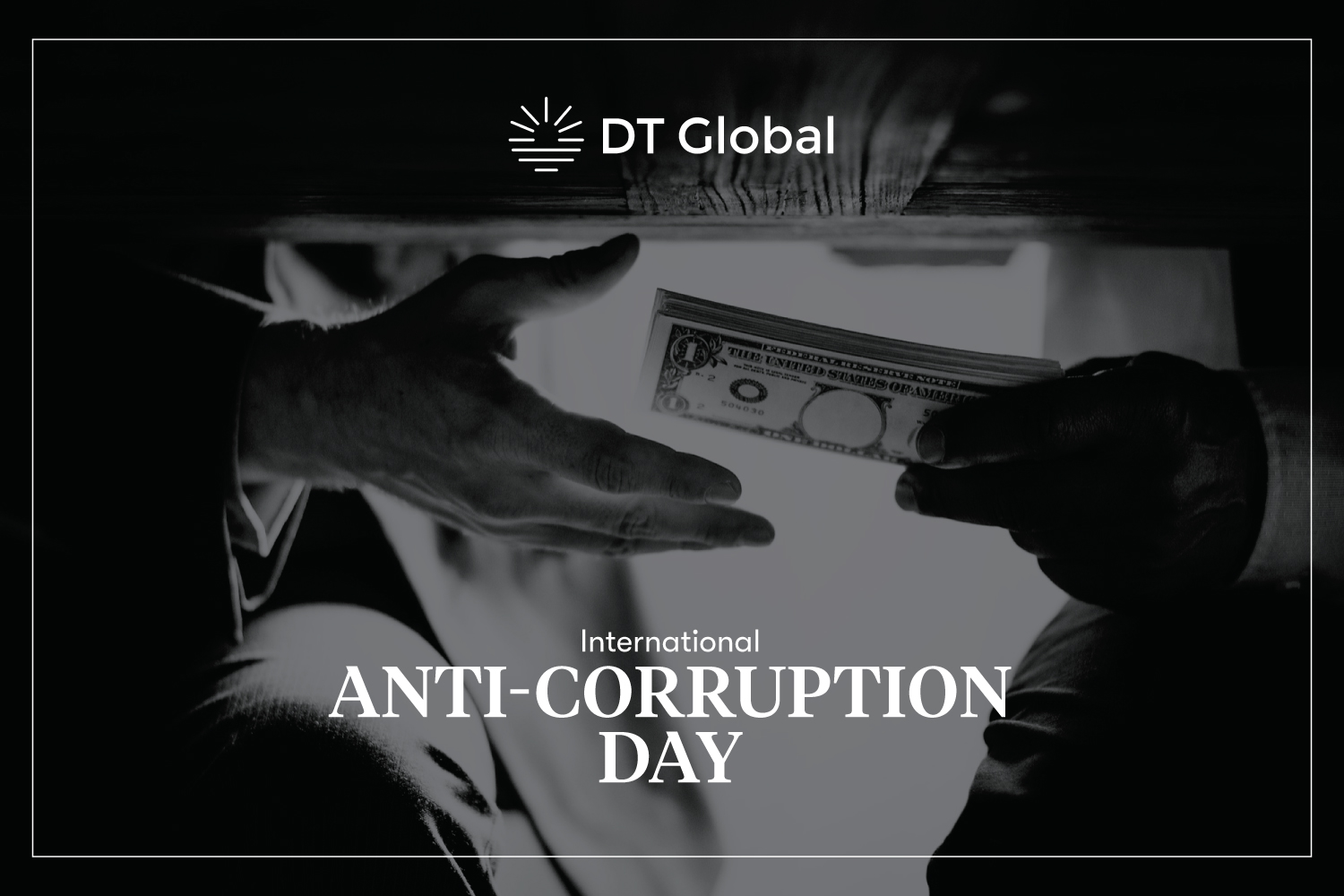
December 9 marks International Anti-Corruption Day (IACD) offering us all an opportunity to acknowledge the important work being done around the world to mitigate the harm done by leaders and officials who prioritize self-promotion over service. Perhaps the most insidious form of social corrosion, corruption eats away at public trust in democratic governance and weakens societies’ abilities to remain resilient to destabilizing shocks.
This year, the UN is elevating the critical link between corruption and insecurity as the 2023 IACD’s primary focus. The UN’s recently adopted Convention Against Corruption highlights how corruption erodes core democratic institutions, from elections to avenues for justice. Similarly, USAID’s Anti-Corruption Policy notes the destructive impact of rampant graft: sparking outrage and discontent among people suffering under corrupt regimes. As hallmarks of free societies suffer from corruption, citizen trust in leaders and democratic systems falters breeding sympathies for alternative, undemocratic, non-peaceful attempts to gain services and seek grievance redress.
At DT Global, we are keenly aware of the vital role healthy, democratic, transparent governance plays in promoting peace and stability. We know that trust in government is a delicate balance, especially during times of crisis. By supporting citizens who bravely step out to hold their officials accountable while simultaneously supporting officials to adopt proactive practices for sharing information and publicly exposing decision-making processes, we are not only bolstering democracy’s key components, but also minimizing societal vulnerabilities to instability and conflict.
This critical agenda is increasingly important and increasingly difficult. The global rise of authoritarianism has further constrained the space for democratic expression and meaningful oversight. Corruption is thus allowed to perpetuate with impunity, and citizens are more regularly intimidated away from their vital role of holding their officials to account at peaceful protests, in online oversight portals, and at the ballot box. Yet as with all democratic practices, the threat to citizen oversight and other anti-corruption measures only elevates their importance.
For this year’s IACD, I want to encourage all who are working in closed and closing spaces to stand firm in the face of intimidation. Know that your efforts to hold your officials accountable is about more than rectifying a specific wrong; it is about securing the democratic future of your society. For those of us supporting the brave work of activists and policymakers around the world to institutionalize open government principles, may we continue to encourage, listen, and adapt our efforts to maximize the positive impact transparency and accountability measures have in building peaceful, democratic societies.